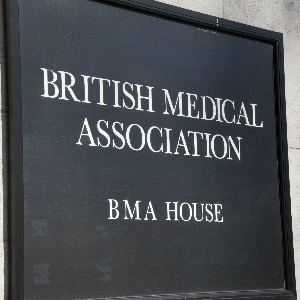An NHS Foundation Trust was in breach of trainee medics’ contracts, a Court of Appeal decision has ruled.
The BMA has heralded the ruling as a ‘significant victory‘ for junior doctors, after it found that trusts and health boards have spent years using software that severely underestimated the extent of work conducted by junior doctors.
The Court of Appeal ruled that Derby Hospitals NHS Foundation Trust’s arrangements for monitoring breaks were in breach of trainee medics’ contracts.
At the ruling, Lord Justice Bean said this could create ‘potentially significant’ costs for the NHS, with estimations that the trainee doctors could be owed £250,000 in supplementary pay.
Chair of the BMA’s junior doctors committee Dr Jeeves Wijesuriya said: ‘Today’s ruling is a victory for junior doctors and confirms that trusts or health boards have been using commercial software that has underestimated the hard work, long hours and inadequate rest faced by junior doctors for years.
‘In overturning last year’s ruling, the Court of Appeal has established a binding precedent in England and Wales in favour of the BMA regarding how monitoring of junior doctors on the 2002 contract should be done.’
The claim, funded by the BMA, was led by Dr Sarah Hallett, deputy chair of the BMA’s junior doctors committee.
The BMA added: ‘Dr Sarah Hallett is not seeking compensation. Our objective has always been to establish the correct interpretation in the law to both protect patient safety and the interests of junior doctors.
‘For those junior doctors on the 2002 contract, banding plays a vital role in ensuring trusts or health boards do not run overly fatiguing or unsafe rotas. Yet the widespread use and incorrect application of monitoring software resulted in trusts failing to pick up issues with working conditions, and potentially weakening the protections afforded to junior doctors in their contracts.
‘These protections were put in place because it is recognised that junior doctors working long hours, in a system under pressure, with no provision for even a short break will be left exhausted.’
The BMA continued: ‘Throughout this case the BMA been clear that is it vitally important that working hours and the ability to take breaks are properly monitored, rotas are compliant, and sanctions enforced where trusts or health boards have not ensured that there are safe working practices in place.’
Following the announcement, Dr Hallett, a London-based paediatric doctor who trained in Derby during 2013, commented on social media: ‘Having breaks is crucial for doctors and the safety of their patients; I hope that this sets a precedent that ensures contractual protections are adhered to in future across the UK.’
She added: ‘Over four years after starting to look into my case, this is something of a bittersweet victory today. It should not have needed to escalate to this level to confirm the importance of accurately assessing if junior doctors are getting breaks.’
Earlier this month, Health Education England outlined its commitments to improve support for junior doctors. Meanwhile, last year saw GP trainee Dr Wijesuriya announce that the BMA would be reopening junior doctor contract negotiations with the Government, via a review of the 2016 contract. Then health secretary Jeremy Hunt imposed the contract in 2016, despite a majority of doctors rejecting it.

















